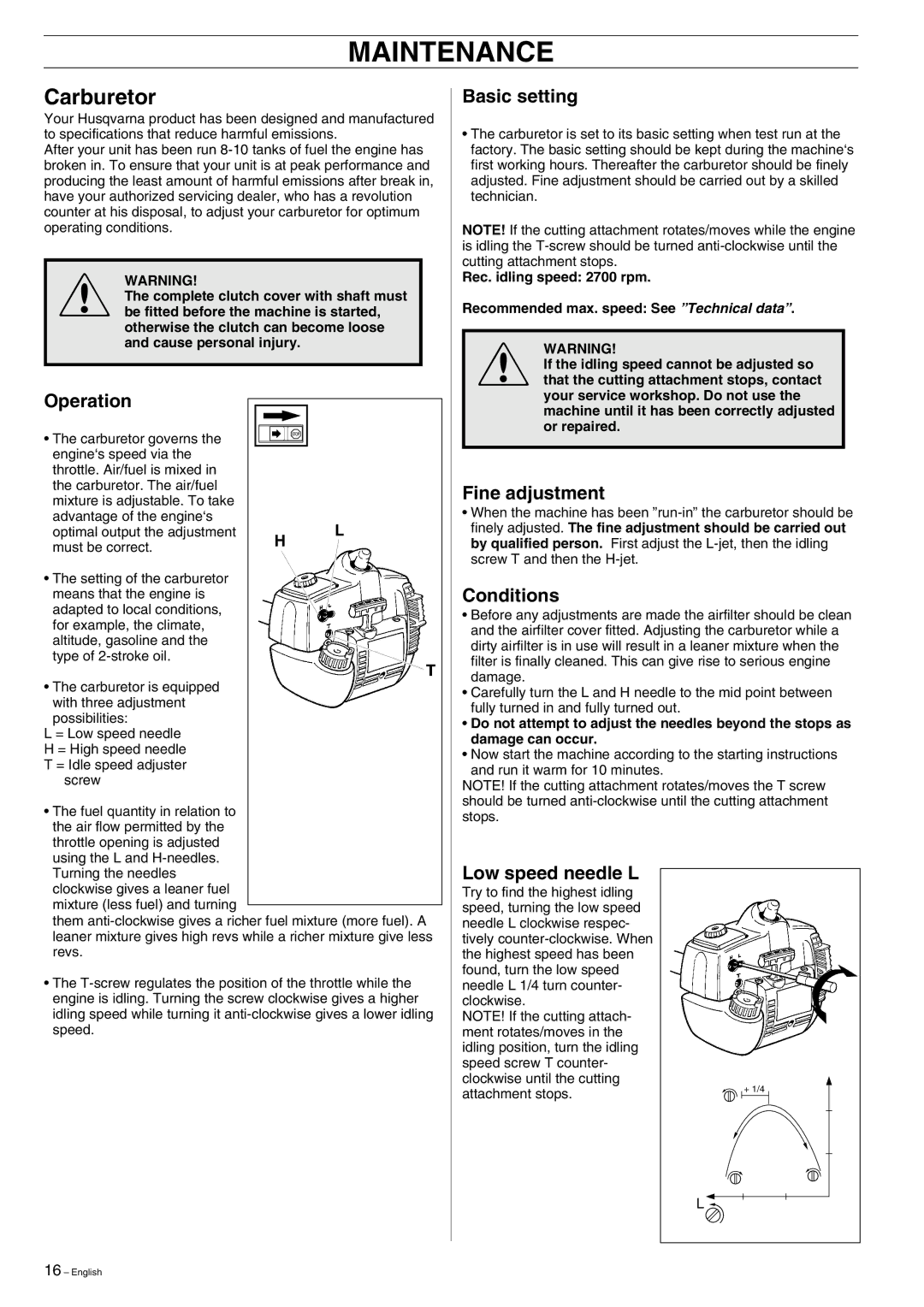323E, 325E specifications
The Husqvarna 323E and 325E models represent a significant advancement in the world of outdoor power equipment, specifically designed for pruning and trimming tasks. These lightweight and versatile brush saws are engineered for both professional landscapers and avid gardeners, offering a perfect blend of power, efficiency, and user-friendly design.One of the main features of the Husqvarna 323E is its low weight, which makes it easy to handle and maneuver during extended use. Weighing in at just over 5 kg (12 lbs), it reduces user fatigue, allowing for long hours of operation without strain. Similarly, the 325E boasts a slightly higher power output while still remaining lightweight, striking an optimal balance between mobility and performance.
Both models are equipped with Husqvarna's innovative X-Torq engine technology, which provides increased power output while reducing fuel consumption and harmful emissions. This makes the 323E and 325E not only efficient machines but also environmentally friendly options for users who prioritize sustainability. The X-Torq engine delivers high torque over a wide RPM range, giving users the ability to tackle tough tasks with ease.
The ergonomic design of these models makes them comfortable to use for extended periods. They feature adjustable handlebars and an anti-vibration system that minimizes fatigue, allowing users to maintain a steady grip and control. The easy-to-use controls further enhance the user experience, enabling operators to focus on the task at hand without unnecessary distractions.
In terms of versatility, the Husqvarna 323E and 325E are compatible with a range of attachments, making them suitable for various applications, from tree care to light brush clearing. This adaptability ensures that users can utilize these tools for a multitude of tasks, maximizing their investment.
In summary, the Husqvarna 323E and 325E brush saws combine lightweight construction with powerful performance and advanced technology. Features like the X-Torq engine, ergonomic design, and versatility make them ideal choices for professionals and enthusiasts alike. With these models, Husqvarna continues to deliver reliable and efficient outdoor equipment tailored to meet the diverse needs of users.

